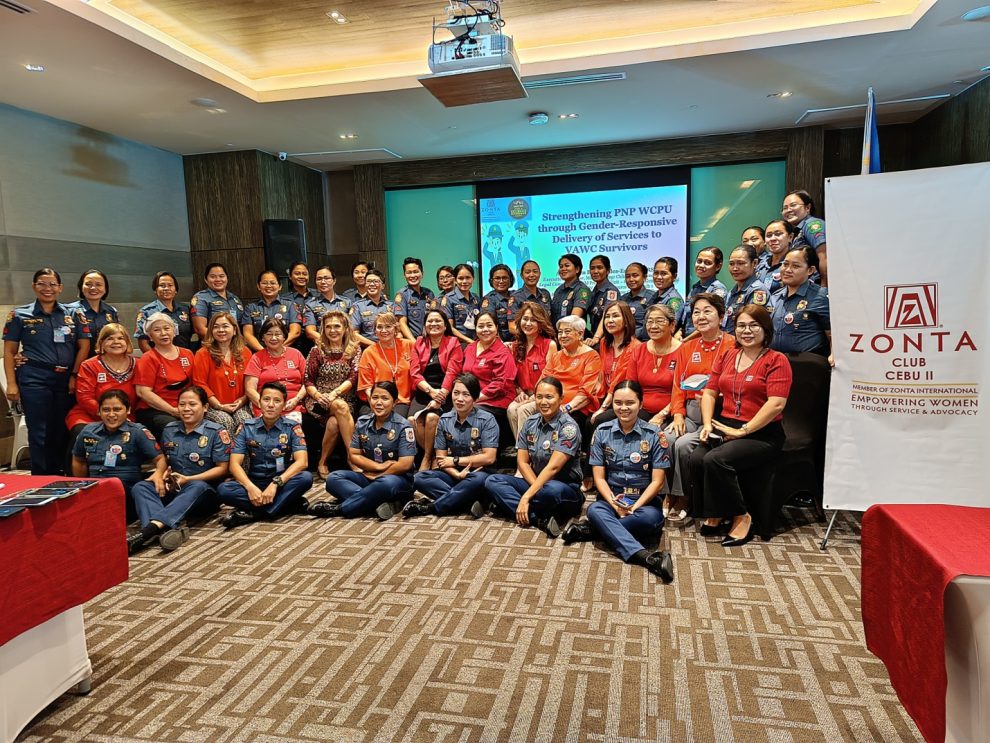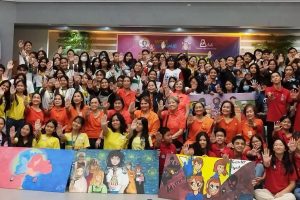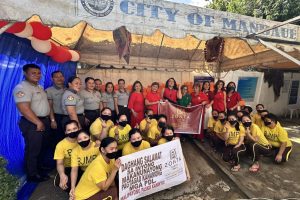Blaming the perpetrator of gender-based violence instead of the survivor, establishing a referral network and collective efforts to stop the violence are among the key takeaways during the seminar-workshop organized by the Zonta Club of Cebu II held Monday, November 28, 2022, at the Bai Hotel in Mandaue City.
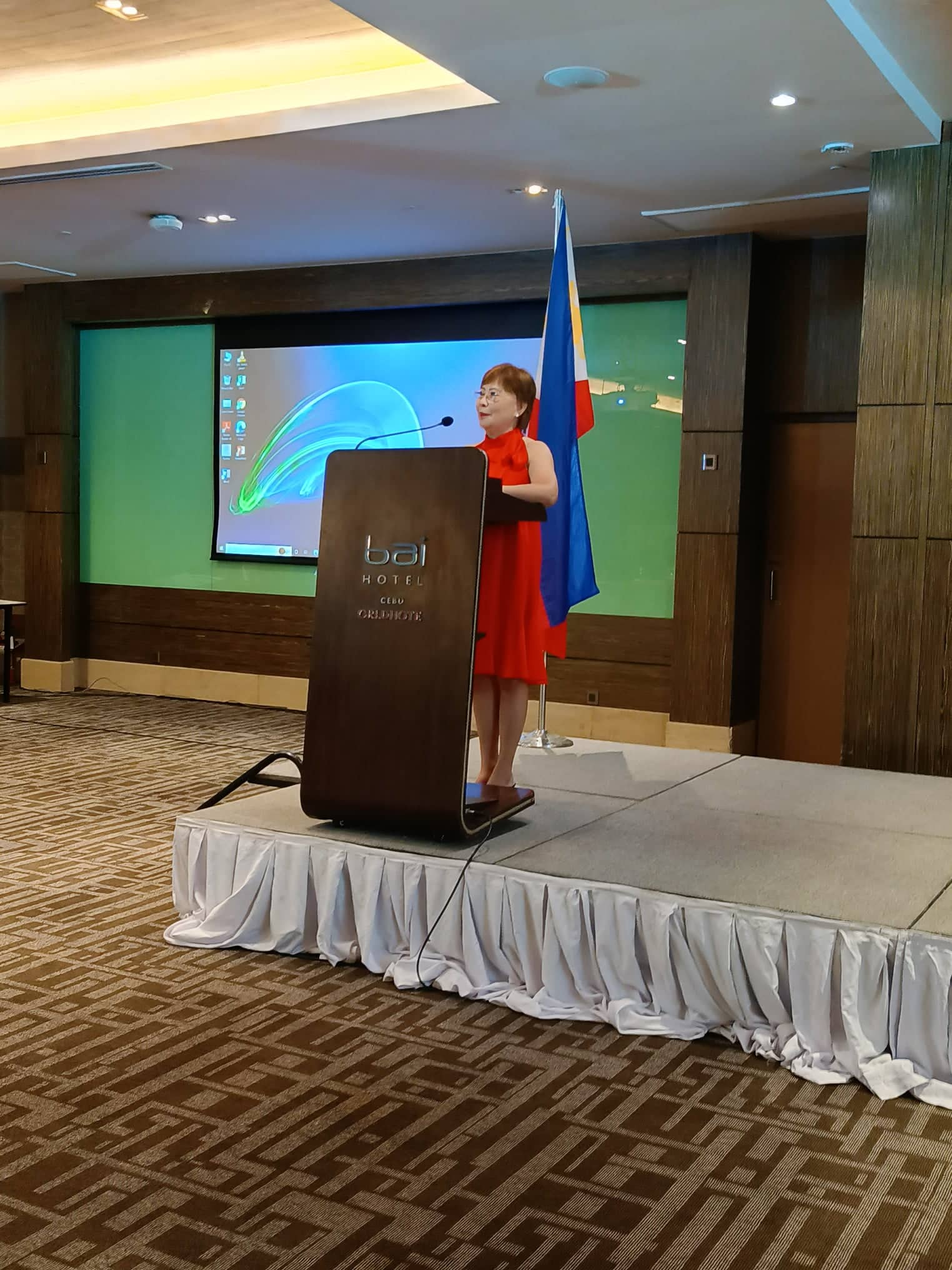
Female police officers assigned to the Women and Children Protection Unit (WCPU) of the Philippine National Police in different, cities and municipalities of Region 7 participated in the seminar-workshop “Strengthening PNP WCPU through Gender-Responsive Delivery of Service to VAWC Survivors.”
The seminar-workshop was conducted by Atty. Myles Gonzales-Esquivel, executive director of Miriam College Child Rights Advocacy Center and legal consultant of Child Protection Unit-Philippine General Hospital. She is also a member of the Philippine Commission on Women.
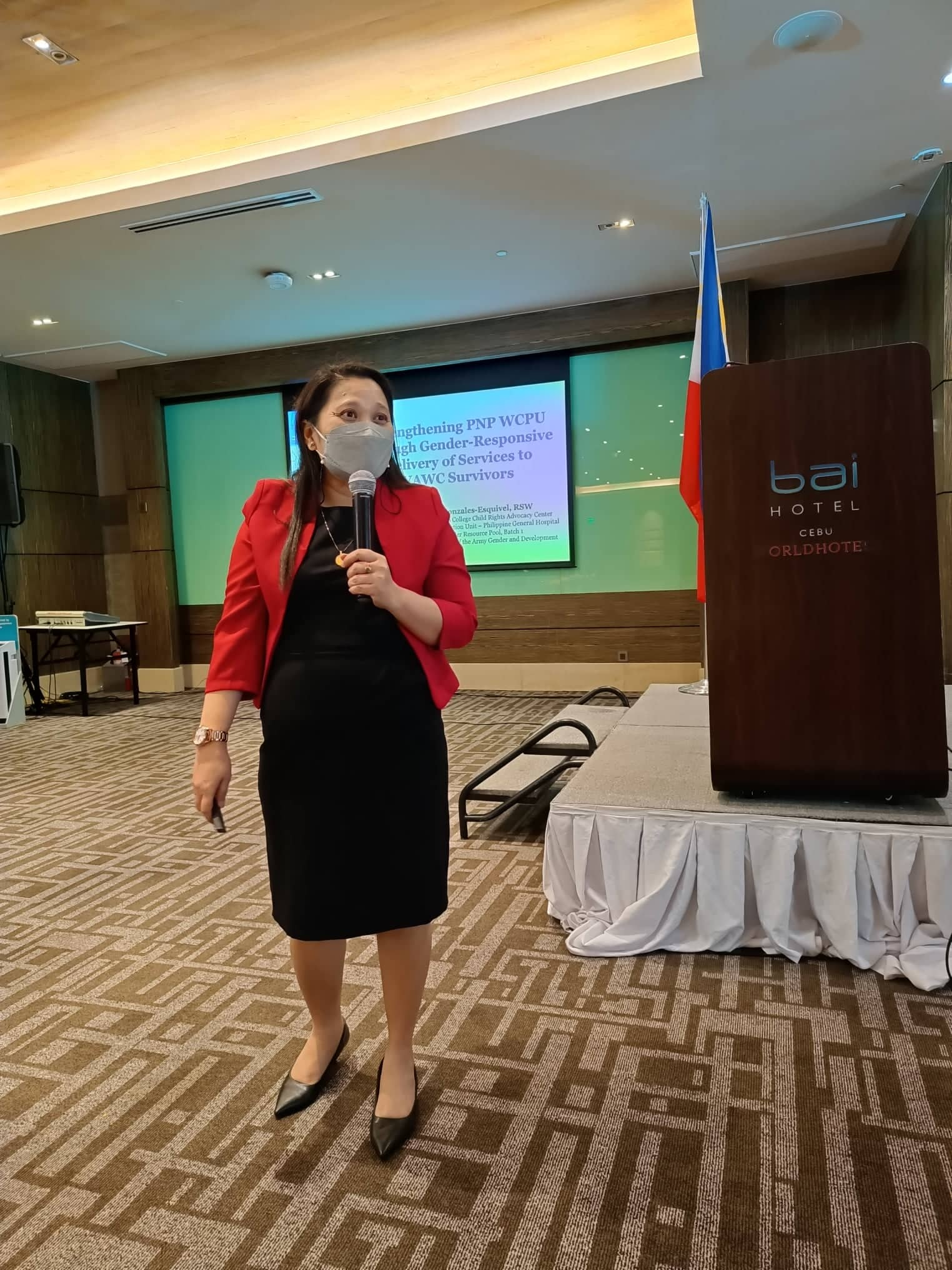
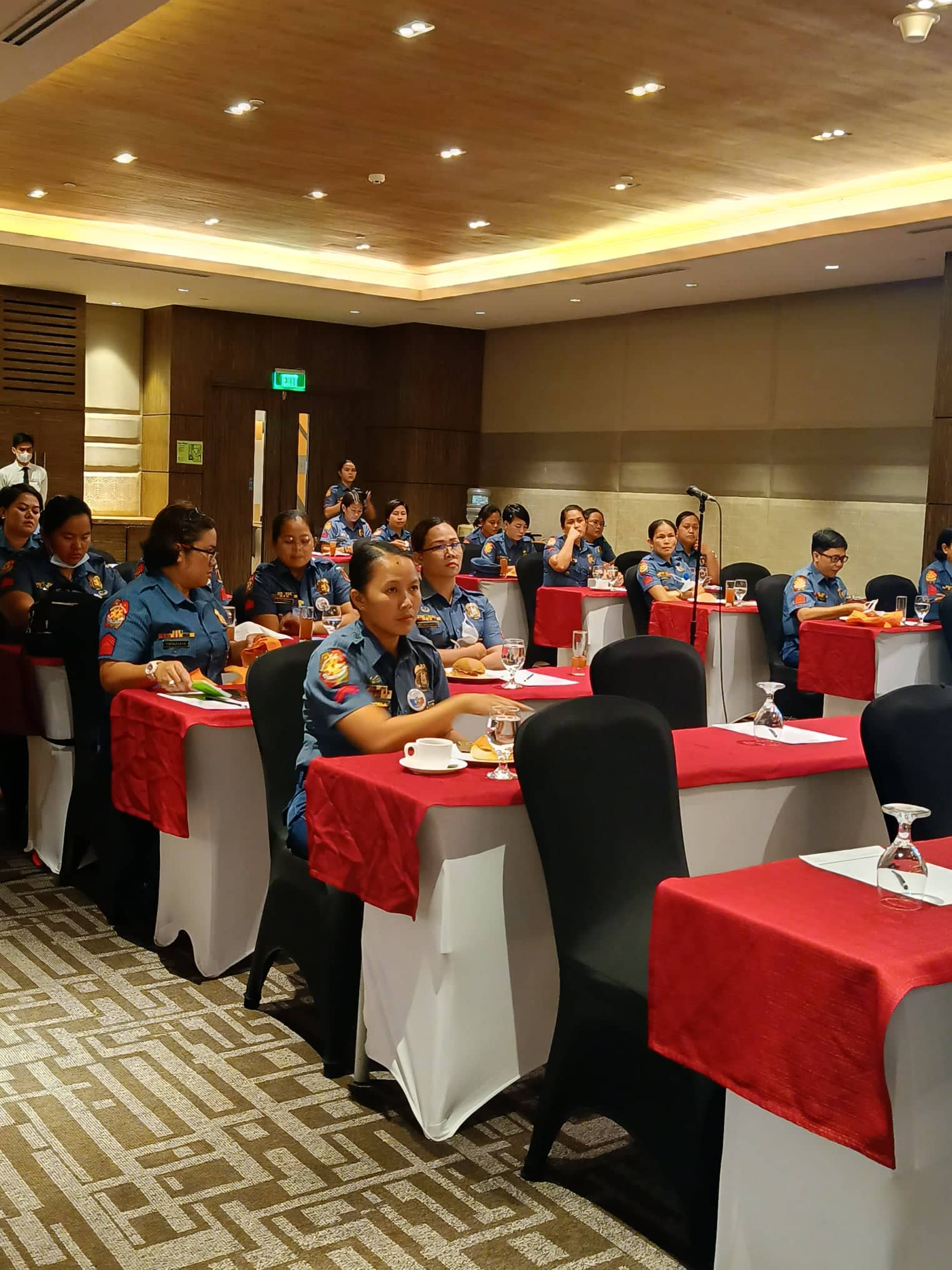
The goal of the workshop was to equip service providers and frontliners with techniques to provide gender-responsive delivery of services. Gender-responsive service providers practice continuum care, respect, informed consent, non-judgmental attitude and gender-fair language.
People should not engage in victim-blaming, which is a devaluing act that occurs when the victim or victims of a crime or an accident is held responsible, in whole or in part, for the crimes that have been committed against them, Atty. Esquivel emphasized during the seminar-workshop.
“It is important to keep in mind that a person who has been affected by gender-based violence is never responsible for the perpetrator’s action. The responsibility and the accountability should be given to the perpetrator of violence and not to the victim-survivor,” Atty. Esquivel maintained.
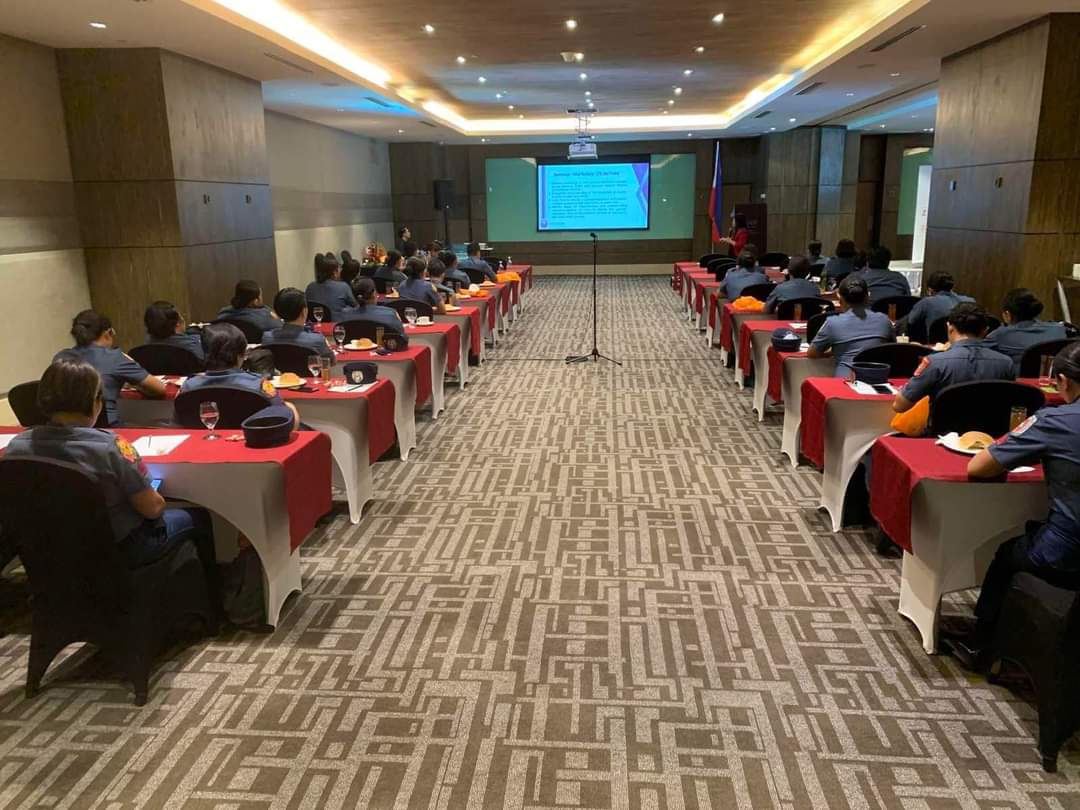
GBV and VAWC persist because of inadequate economic resources, which creates patterns of violence and poverty among women and LGBT+ people. When unemployment and poverty affect men, this can also cause them to assert their masculinity through violent means.
According to Atty. Esquivel, gender-based violence is an issue involving patriarchy, and relations of power and is based on a feeling of male superiority and dominance, with an intention to relegate the female to a subordinate role at home, at school and at work, in the community or in society as a whole.
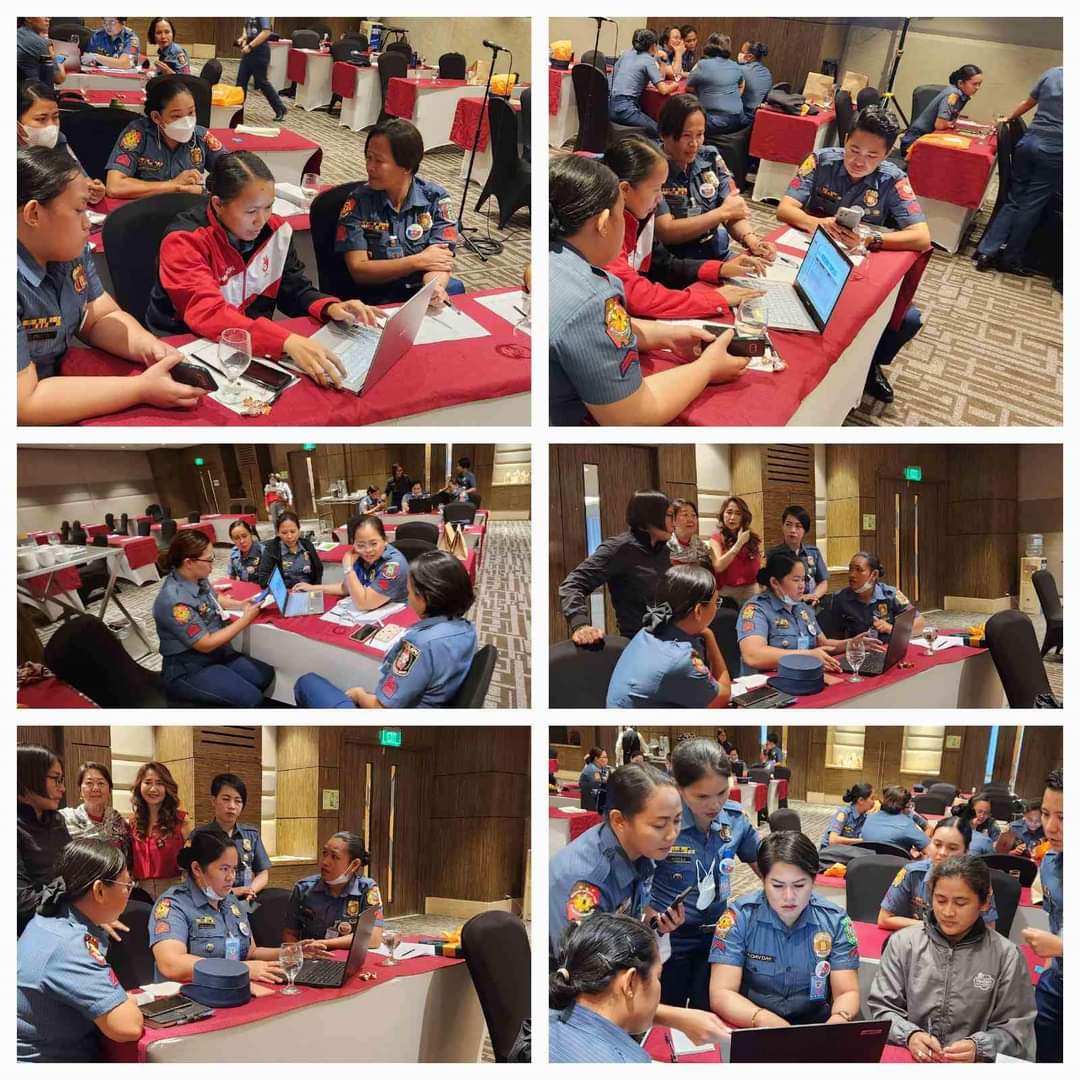
During the workshop, the participants were divided into groups to identify areas for improvement, and corresponding recommendations on how to ensure gender-responsive and socially-inclusive services to GBV and VAWC survivors. Since resources are limited those who work with VAW victim/survivors must set up a referral network involving other agencies for a more coordinated and cost-effective response to violence.







